
Journal Menu
► ▼ Journal Menu-
- Nanomaterials Home
- Aims & Scope
- Editorial Board
- Reviewer Board
- Topical Advisory Panel
- Instructions for Authors
- Special Issues
- Topics
- Sections & Collections
- Article Processing Charge
- Indexing & Archiving
- Editor’s Choice Articles
- Most Cited & Viewed
- Journal Statistics
- Journal History
- Journal Awards
- Society Collaborations
- Conferences
- Editorial Office
Journal Browser
► ▼ Journal BrowserNeed Help?
Announcements
9 March 2023
Interview with Dr. Tsung-Rong Kuo—Winner of the Nanomaterials 2022 Outstanding Reviewer Award
We are pleased to announce the winner of the Nanomaterials 2022 Outstanding Reviewer Award—Dr. Tsung-Rong Kuo.

Name: Dr. Tsung-Rong Kuo
Affiliation: Graduate Institute of Nanomedicine and Medical Engineering, Taipei Medical University, Taiwan
Research Interests: optical sensors; biosensors; nanosensors; chemical sensors; SERS; plasmonic nanomaterials; antibacterial nanomaterials
Dr. Tsung-Rong Kuo hails from Taiwan. He received his Ph.D. degree in chemistry from the National Taiwan Normal University in 2011. His Ph.D. research topic focused on preparations of plasmonic nanomaterials as carriers for drug delivery systems. Additionally, he then worked as a postdoctoral fellow at the Institute of Atomic and Molecular Sciences, Academia Sinica, Taiwan. At that time, he designed and synthesized nanomaterials as contrast agents for application in molecular imaging. Afterward, he continued his postdoctoral fellowship at the Department of Chemistry at the University of California (Berkeley). At Berkeley, he synthesized shape-controlled silver nanocrystals, and prepared silver nanocrystals and Langmuir–Blodgett films as surface-enhanced Raman scattering substrates. In 2015, he joined the Graduate Institute of Nanomedicine and Medical Engineering at Taipei Medical University as an Assistant Professor and was promoted to Associate Professor in 2019. In 2022, he was promoted to Professor. He is currently the director of the Graduate Institute of Nanomedicine and Medical Engineering and the International Ph.D. Program in Biomedical Engineering at Taipei Medical University. His recent research interests focus on preparations of nanomaterials for application in nanomedicine. He is credited with 71 publications with 1993 citations, and his h-index is now 26.
We would like to thank the award committee for their hard work in the difficult task of selecting a winner from such a large number of exceptional candidates. We will continue to reward reviewers with the Outstanding Reviewer Award to express our acknowledgment of their efforts in maintaining the high quality and quick turnaround time of the journal, and we wish them every success in their careers.
We hope you enjoy the interview with Dr. Tsung-Rong Kuo:
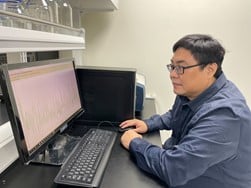
1. Could you give a brief introduction of yourself to our readers?
I am currently a professor at the Graduate Institute of Nanomedicine and Medical Engineering at Taipei Medical University. I have been working as an academic researcher at Taipei Medical University for more than seven years. At my current job at Taipei Medical University, I teach nanomaterials courses to undergraduate and graduate students. I am also the advisor to the graduate students in my lab. Our research group has focused on the designs and preparations of various nanomaterials for applications such as antibacterial agents, detection via surface-enhanced Raman spectroscopy, and photosynthetic biohybrid systems. Most importantly, as the director of the Graduate Institute of Nanomedicine and Medical Engineering and the International Ph.D. Program in Biomedical Engineering at Taipei Medical University, I take charge of recruiting international students. Taipei Medical University has been a leader in Taiwan’s healthcare system for more than half a century. Around 6,000 students from over 40 countries are currently enrolled at TMU's ten colleges. It is ranked 384 in the QS World University Rankings 2023 and ranked 201-250 in the THE World University Rankings 2022. We encourage international students to apply to our institute and program. My lab also welcomes students who are interested in nanoscience and nanotechnology.
2. What’s the focus of your current research, and why did you choose this research field? As a reviewer, what kind of manuscripts would you prefer to review in the future?
My current research is focused on the design, synthesis, and application of nanomaterials for biomedical applications. For example, we have prepared different morphologies of CuS, including microspheres, nanosheets, and nanoparticles, for light-driven antibacterial application. Based on the results of bacterial growth curves, ROS generation, and electron paramagnetic resonance studies, CuS nanostructures have higher photodynamic antibacterial activities. Moreover, bacteria incubated with CuS nanoparticles and CuS nanosheets have exhibited substantial bacterial degradation after near-infrared laser irradiation, which can be attributed to their photothermal killing effects.
Based on my research background and current health threats from bacterial infections, I believe that the development of novel antibacterial agents is an urgent task for human sustainability. Nanomaterials with unique chemical and physical properties are very suitable for this task, as they can act as antibacterial agents to combat bacterial infections. Therefore, I chose to focus my research on the development of antibacterial nanomaterials.
As a reviewer, I prefer to review manuscripts related to my current research interests. I appreciate reading pioneering research works from other research groups before their publication, and I can benefit from these novel research results. When I review an article, I sometimes get new ideas for my own research work, which is of great help to me.
3. Which research topics do you think are of particular interest to the research community in the coming years?
Currently, our group focuses on the research topic of photosynthetic biohybrid systems. The developments of efficient harvesting and storage of solar energy can provide unlimited renewable power and also address the environmental and climate change crises. We design and develop photosynthetic biohybrid systems based on light-absorbing nanomaterials and bacteria to convert greenhouse gases such as carbon dioxide into valuable chemicals with high specificity and low cost. Under solar light irradiation, light-absorbing nanomaterials can produce photogenerated electrons to assist bacteria in the conversion of carbon dioxide to acetic acid. Moreover, the photothermal effect of nanomaterials can be used to increase the temperature of biohybrid systems to facilitate the growth of bacteria. However, elucidating the details of the reaction mechanisms of biohybrid systems is still an urgent task in our quest to improve conversion efficiency in photosynthetic biohybrid systems. In the near future, with the advantages of light-absorbing nanomaterials, photosynthetic biohybrid systems will reveal high-performance abilities, one of which is the ability to capture sunlight for accomplishing carbon dioxide fixation. Recently, we have published a review paper entitled “Emerging Trends in Nanomaterials for Photosynthetic Biohybrid Systems” in ACS Materials Letters. In this review paper, we collected some recent publications on the research topic of photosynthetic biohybrid systems, and we also explored the perspectives, challenges and opportunities of future practical applications of photosynthetic biohybrid systems. To read this review paper, please visit https://doi.org/10.1021/acsmaterialslett.2c00752.
4. Have you ever encountered any difficulties when conducting research? How did you overcome them?
In the early stages of my academic research, the first difficulty was applying for and receiving a research grant to set up my lab. I invested most of my research grant to buy lab infrastructure and analytical instruments. At this time, I could only provide a very small scholarship budget to recruit graduate students. Therefore, I had a very limited number of students with whom I could execute my research project. To overcome the issue of my limited research budget, I wrote many research proposals in order to attain research grants each year. I tried to apply for research grants that I could. However, writing these research proposals was very time-consuming, and thus, I did not have enough time to publish a research paper.
After my promotion to the position of professor, I had a large enough research budget to maintain my lab and provide scholarships for graduate students. However, currently, the recruitment of graduate students has turned out to be a difficult task. In Taiwan, there is a lack of graduate students; therefore, we have to recruit international graduate students to join our university. With competition from different countries, we have found it difficult to recruit international graduate students. To overcome the difficulty of our lack of lab graduate students, we try to provide high-quality research projects and a high number of scholarships in order to recruit international graduate students with outstanding research backgrounds.
5. If you have the opportunity, will you actively apply to attend academic conferences? What do you think you can learn from participating in conferences that are different from working in a lab?
I joined many local and international academic conferences when I was completing my Ph.D. During these academic conferences, I had the opportunity to display my research data via posters or talks. During communications with various other researchers and fields during the academic conferences, you can brainstorm using your own research projects. Furthermore, I had the chance to join talks given by pioneers in my field of interest and field of research during these academic conferences. Most importantly, I had the opportunity to meet old friends and make new friends. Doing academic research can be a lonely endeavor, and it is almost impossible to carry out research alone. Therefore, joining academic conferences is a good opportunity to make research connections. To this I say, why not?
As a research advisor, I also encourage the graduate students in my lab to join academic conferences. In taking these opportunities, they can practice presenting their research data to the scientific community. For me, personally, I can guide them in giving a good presentation and overcoming the fear of presenting to the public. I believe this is a win-win situation. Therefore, it is an important event when our research group joins an academic conference each year.
6. We are an Open Access journal. How do you think Open Access impacts authors?
Open Access journals make research articles freely available to anyone with internet access, without requiring a subscription or payment. In Open Access journals, readers can access and download the full text of articles without any financial barriers. Research articles published via Open Access can increase the accessibility and visibility of research, which can lead to increased citation and impact. Open Access journals have become more popular in recent years because they provide researchers with a wider readership and greater exposure of their work. Moreover, Open Access can help to address the issue of journal subscription costs, which can be a barrier to accessing research for individuals and institutions with limited resources. However, Open Access journals have also suffered various criticisms. Some claim that the article processing charges required by some Open Access journals can be prohibitively expensive for researchers, particularly those working in low-income countries. Additionally, there are concerns about the quality and rigor of some Open Access journals, as they may not have the same level of peer review and editorial oversight as traditional subscription-based journals. Overall, Open Access journals are a complex and evolving landscape that has the potential to democratize access to research and promote scholarly communication.
In my personal opinion, there are some important qualities that reviewers should have to be effective in their role. Herein, I have added a few qualities that I believe are particularly important:
- Objectivity: Reviewers should pay attention to being unbiased and objective when reviewing a manuscript. This means that the reviewers should evaluate the research work according to its merits, rather than their personal preferences or biases.
- Attention to detail: Reviewers should be careful and detail-oriented, paying attention to the unique aspects of the research work they are reviewing. Reviewers should also examine things like grammar, formatting, and citation style.
- Critical thinking: Reviewers should be able to think critically about the research work they are evaluating, identifying its strengths and weaknesses and providing constructive feedback.
- Communication skills: Reviewers should be able to clearly communicate their comments and suggestions to the author in a respectful and professional manner. This includes providing specific examples and actionable recommendations for the improvement of the manuscript.
- Time management: Reviewers should be able to manage their time effectively, ensuring that they can finish their reviews in a timely manner without sacrificing quality. This is particularly important in fields in which timely reviews are essential.
- Subject matter expertise: Reviewers should have a strong background in the research work that they are evaluating, allowing them to provide informed comments and suggestions for authors.
For more information about Nanomaterials awards, please refer to the following link: https://www.mdpi.com/journal/nanomaterials/awards.
9 March 2023
Interview with Dr. Gueorgui Gueorguiev—Winner of the Nanomaterials 2022 Outstanding Reviewer Award
We are pleased to announce the winner of the Nanomaterials 2022 Outstanding Reviewer Award—Dr. Gueorgui Gueorguiev.

Name: Dr. Gueorgui Gueorguiev
Affiliation: Department of Physics, Chemistry and Biology (IFM), Linköping University, Sweden
Research Interests: carbon-based materials; inherently nanostructured thin films; group-III nitrides; group-III bismides; graphene; ultrathin films; protective coatings; 2D materials; ab-initio calculations; synthetic growth of thin films; molecular dynamics for nanostructured materials; magnetron sputtering; MOCVD; atomic layer deposition (ALD)
Dr. Gueorguiev completed his Ph.D. on the structural and electronic properties of carbon- and silicon-based clusters in 2003 at Coimbra University, Portugal, with the exceptional mark “Cum Laude” and following a fellowship at the prestigious Portuguese Instituto Camões.
Dr. Gueorguiev joined Linköping University, Sweden, in the year 2004 by establishing a new line of research on the theoretical design of nanostructured carbon-based thin films with pre-defined properties and with immediate experimental verification. By developing the DFT-based synthetic growth concept, he discovered and pioneered a new class of materials, that of fullerene-like thin solid films. His research interests then expanded towards 2D and van der Waals structures, layered compounds, and coatings with applications in aviation. The theoretical approaches to these include first principles and effective methods in computational materials science, synthesis techniques involving magnetron sputtering, MOCVD, and atomic layer deposition. The diversity and independence of his research activities and achievements are reflected in his publication profile.
For the past ten years, he has built a strong, competitive, and expansive research and education network in materials science, linking Linköping University (LiU) and the Federal University of Bahia (UFBA)—https://liu.se/en/research/liu-ufba-network. This network involves a dynamic team, the exchange of research visits, joint supervision of Ph.D. students, joint execution of graduate courses, joint publishing of findings in new material phenomena with international impact for a variety of applications, and jointly organized high-level professional events.
We would like to thank the award committee for their hard work in the difficult task of selecting a winner from such a large number of exceptional candidates. We will continue to reward reviewers with the Outstanding Reviewer Award to express our acknowledgment of their efforts in maintaining the high quality and quick turnaround time of the journal, and we wish them every success in their careers.
We hope you enjoy the interview.
1. Could you give a brief introduction of yourself to the readers?
I am an Associate Professor at Linköping University in Sweden. I am a theoretician with a strong interest in the immediate experimental verification of theoretical predictions in materials science and their subsequent applications. My topical research lines include emerging 2D group III nitrides and oxides, topological insulators, inherently nanostructured carbon-based thin films for protective coatings, including hard/elastic and self-healing coatings, 2D carbon-based systems for the nanoelectronics and metal-organic interfaces, 2D silicon-based and cluster-assembled materials including silicon boride, and working towards a metal-semiconductor transition in 2D.
2. What’s your current research focus, and why did you choose this research field? As a reviewer, what kind of manuscripts would you prefer to review in the future?
For my current research topics, please see the previous question. My research focus on nanostructured materials and low-dimensional materials evolved as a result of a complex combination of following my own research interests, participating in the development of the field, working intense on my own projects and proposals, and working as a team member on larger projects. As a reviewer, due to the progress of my research and my many skills, I would say that I am quite versatile, and I feel equally comfortable and competent when evaluating not only theoretical but also most experimental manuscripts in the field of nanostructured materials.
3. Which research topics do you think are of particular interest to the research community in the coming years?
Low-dimensional and layered materials, heterostructures, and topological materials, to name just a few. Nanomaterials that are achievable by robust, repeatable, scalable, and industrially viable techniques will also be of particular interest (in contrast to those that rely on exotic, difficult-to-reproduce techniques).
4. What do you think you can learn from participating in conferences?
Well-planned, well-organized, topical scientific meetings, events, conferences, and workshops will always be important and significantly impact progress in most research fields. After the pandemic, most scientists have come to appreciate these opportunities even more so than before.
5. We are an Open Access journal. How do you think Open Access impacts authors?
Open Access publication has clearly become the paradigm in scientific publishing. In my opinion, its advantages are clear. The popularization of research, high numbers of citations of quality research, and in the end, quicker progress in most research fields are all reasons to support the increasing number of available Open Access journals.
6. Which qualities do you think reviewers need?
Scientific competence in the reviewed field and recent, updated knowledge are clearly and undoubtedly the necessary qualities for a reviewer. However, some other essential qualities of reviewers are frequently overlooked. A reviewer should be able to see the bigger picture, i.e., whether a given manuscript fits the recent trends and developments in impact and progress in the given field. The linguistic and stylistic competence of the reviewer cannot be neglected; they should be able to identify whether a manuscript is a good read, whether it is attractive to the audience, and whether it can inspire further work along similar research lines. The objectivity of reviewers is also frequently overlooked; a reviewer should not be guided by his/her own research inertia and preferences. Last but not least, a reviewer should be critical but positive, trying to help through advice and detailed comments on the publication of a manuscript that may exhibit good potential, even when this potential is accompanied by some errors or by insufficient presentation of results.
For more information about Nanomaterials awards, please refer to the following link: https://www.mdpi.com/journal/nanomaterials/awards.
8 March 2023
Interview with Dr. Liang Huang—Winner of the Nanomaterials 2022 Young Investigator Award
We are pleased to announce the winner of the Nanomaterials 2022 Young Investigator Award—Dr. Liang Huang.

Name: Dr. Liang Huang
Affiliation: Wuhan National Laboratory for Optoelectronics, Huazhong University of Science and Technology, Wuhan, China
Website: http://faculty.hust.edu.cn/huangliang1/en/index.htm
Dr. Liang Huang received his B.S. and Ph.D. degrees from Lanzhou University in 2007 and 2013, respectively. He became a principal investigator at the Wuhan National Laboratory for Optoelectronics (WNLO), Huazhong University of Science and Technology in 2016. His current interests focus on the salt-assisted synthesis of 2D materials for energy conversion and storage. He published over 120 papers on science advances, advanced materials, nano letters, ACS energy letters, ACS nano, advanced energy materials, etc. and has an H-index of 55. He is the Chutian scholar of Hubei Province (2017), Outstanding Scholar in Central China (2019), the Top 2% scientist selected by Stanford-Elsevier (2019 and 2020), and he received the 2020 IAAM Young Scientist Medal.
Please join us in congratulating Dr. Liang Huang for his outstanding achievements.
We would like to thank the award committee for their excellent work in the hard task of selecting a winner from such a large number of excellent candidates. We would also like to thank all the nominees from various fields for their participation. We will continue to reward young scientists with the Young Investigator Award and wish them every success in their careers.
The following is a short Q&A with Dr. Liang Huang:
1. Could you give us a brief introduction of yourself to the readers?
My name is Liang Huang from Xinyu, Jiangxi Province, China. I got my B.S. and Ph.D. degrees from Lanzhou University in 2007 and 2013, respectively. Now, I am working at the Huazhong University Of Science And Technology as an Associate Professor.
2. What’s your current research and why did you choose this research field?
Two-dimensional (2D) materials have demonstrated good chemical, optical, electrical, and magnetic characteristics and offer great potential in numerous applications. Therefore, corresponding synthesis technology of 2D materials that is timesaving, with high quality, high yield and low cost is desired. That is the reason why my group focuses on the salt-assisted synthesis of 2D materials to balance the quality and yield. The salt as a template or synthetic medium can be reusable and can work under high temperatures over the limitation of materials’ structure to form atomical thickness.
3. Which research topics do you think are of particular interest to the research community in the coming years?
In my opinion, I think the integrated chip using 2D materials will be of particular interest to the research community in the coming years.
4. What qualities do you think young scientists need?
This is a tough question. I think young scientists need to enjoy failure since we have to face lots of difficulties around us.
5. Can you briefly describe the key to a happy laboratory life?
Finding the research interesting and creating a family lab culture.
6. As the winner of this award, is there something you want to express, or someone to thank most?
As the winner of this award, I want to thank my wife, because I work in the lab six days a week from morning till night. I wouldn't be able to do my job without her understanding and tolerance to deal with things at home.
For more information about Nanomaterials awards, please refer to the following link: https://www.mdpi.com/journal/nanomaterials/awards.
7 March 2023
Displaying Co-Authors’ Email Addresses on the Webpage of Published Papers
MDPI is pleased to announce that we now display the co-authors’ email addresses in addition to the corresponding author’s email address on the webpage of published papers, protected by Captcha. For more information about this change, please visit the journal’s instructions for authors page.
We believe this change will facilitate academic discussions and advance our cause of open science and research. The corresponding authors are responsible for communicating with their co-authors and indicating in our system (https://susy.mdpi.com/) if co-authors would prefer for their email addresses not to be displayed.
16 February 2023
Increasing Visibility for Preprints.org – Clarivate adds the Preprint Citation Index to the Web of Science
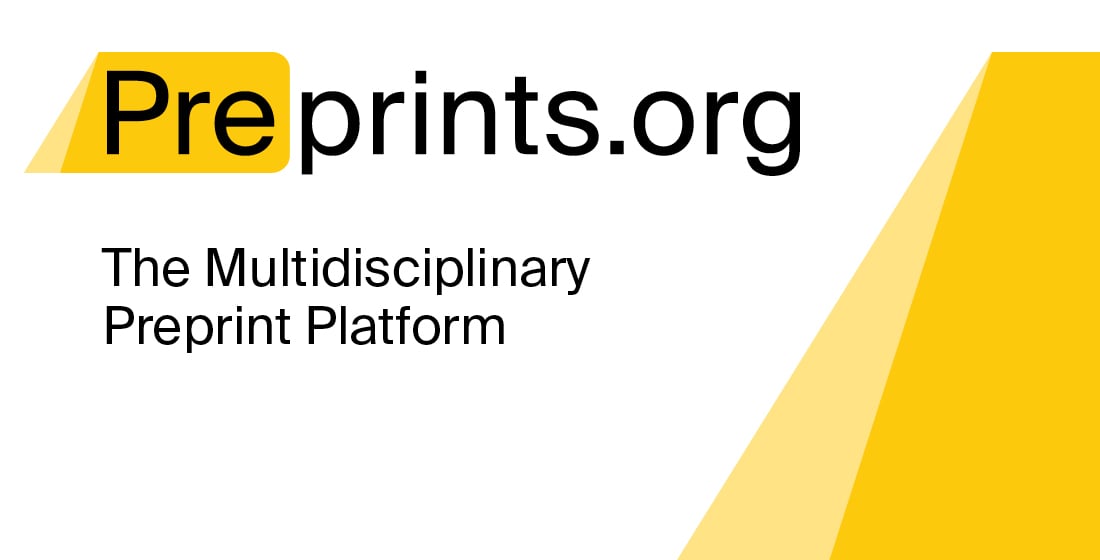
On 9 February 2023, Clarivate, a global leader in providing trusted insights and analytics, added the Preprint Citation Index to the Web of Science platform, streamlining the research process by allowing researchers to locate and link to preprints alongside other trusted content in the database.
The Preprint Citation Index will act as a bridge to connect cutting-edge preprints with peer-reviewed journal articles published within the Web of Science Core Collection. Alerts can be easily set to monitor new research across several repositories and authors will also be able to include preprints on their Web of Science Research Profile to more accurately display their various research outputs.
As of its launch, the Preprint Citation Index will provide nearly two million preprints from various repositories, including MDPI’s own Preprints.org.
MDPI's Preprints Platform – Preprints.org
To advance Open Science and the fast dissemination of research, MDPI offers researchers a free multidisciplinary preprint platform. Preprints.org accepts submissions from all research areas and offers authors high visibility, permanent archiving, article-level Metrics and immediately citable content by assigning a Digital Object Identifier (DOI) to all preprints.
During submission to any MDPI journal, authors have the option to share their research as a preprint. After an initial screening, the manuscript is available online in 48 hours or less. Once online, preprints can be downloaded, shared, commented on, and cited, providing authors maximum visibility.
We invite you to join the ranks of the over 100k researchers using Preprints.org and share your research.
For more information, please visit Preprints.org.
9 February 2023
Meet Us at the Fourth International Conference on Energy Storage Materials, 13–16 April 2023, Shenzhen, China
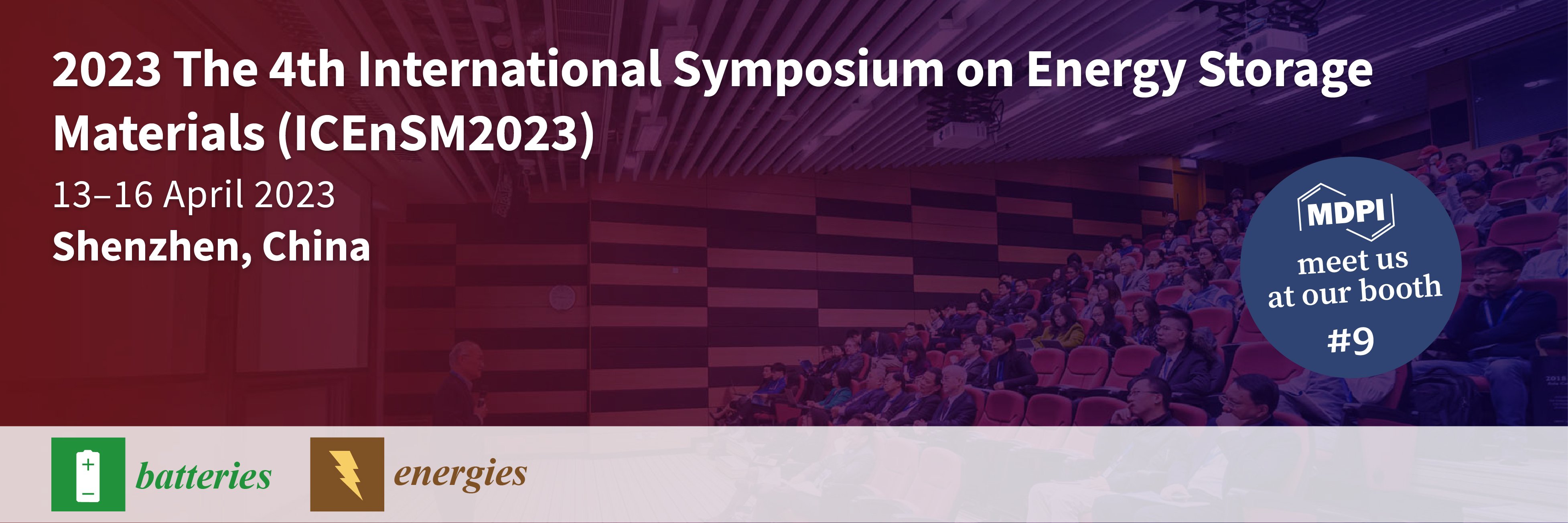
Conference: The Fourth International Conference on Energy Storage Materials
Date: 13–16 April 2023
MDPI will be attending the Fourth International Conference on Energy Storage Materials as the exhibitor. With the theme of advanced energy storage materials and energy storage devices, this seminar invites well-known scholars and industry professionals from around the world to discuss the latest research progress and industrial development status and trends in advanced energy storage materials and devices from academic and industrial perspectives in order to promote the application process of energy storage materials and energy storage devices. The conference is held annually.
The following MDPI journals will be represented:
- Batteries;
- Energies;
- Sustainability;
- Materials;
- Electronics;
- Nanomaterials;
- Inorganics;
- Crystals;
- AppliedChem;
- Membranes;
- Electrochem;
- Applied Sciences;
- Metals;
- Molecules.
If you are attending this conference, please feel free to start a conversation with us at our booth: #9. Our delegates look forward to meeting you in person and answering any questions that you may have. For more information about the conference, please visit http://www.icensm.ac.cn/eindex.html.
7 February 2023
Interview with Dr. Aiping Chen—Winner of Nanomaterials 2022 Young Investigator Award
We are pleased to announce the winner of the Nanomaterials 2022 Young Investigator Award—Dr. Aiping Chen.

Name: Dr. Aiping Chen
Affiliation: Center for Integrated Nanotechnologies, Los Alamos National Laboratory, Los Alamos, NM 87545, USA
Website: https://scholar.google.com/citations?user=kTz75FoAAAAJ&hl=zh-CN
Dr. Aiping Chen is a scientist at the Center for Integrated Nanotechnologies (CINT) at Los Alamos National Laboratory (LANL), New Mexico, USA. The CINT is a user facility funded by the U.S. Department of Energy, Office of Science, which serves national and international users. Dr. Chen received a B.Sc. in applied physics and an M.E. in physical electronics from Huazhong University of Science and Technology in 2007 and 2009, respectively. He then joined Texas A&M University in 2009 and completed his Ph.D. in electrical engineering in 2013. After his Ph.D., he continued to research functional thin films as a Director’s Postdoctoral Fellow at LANL. He became a CINT scientist in 2016. Since then, he has been leading efforts to synthesize and characterize thin film at CINT and working with CINT users on nanoscience research. His recent research focuses on thin film synthesis, emerging phenomena in quantum materials and electronic devices. He was awarded the LANL Early Career Award in 2017. He has published over 120 papers that have been cited more than 4600 times and has an h-index of 39 (Google Scholar). He actively participates in the activities of different societies. He serves as an Editorial Board Member for Scientific Reports and Nano Convergence. He has organized many symposiums and been invited to give many talks at different international conferences.
We would like to thank the award committee for their hard work in the difficult task of selecting a winner from such a large number of exceptional candidates. We also thank all the nominees from various fields for their participation. We will continue to reward young scientists with the Young Investigator Award, and wish them every success in their careers.
For more information about Nanomaterials awards, please refer to the following link: https://www.mdpi.com/journal/nanomaterials/awards.
The following is an interview with Dr. Aiping Chen:
1. Which research topics do you think will be of particular interest to the research community in the coming years?
For nanoscience and nanomaterials research, the following areas could attract increasing attention in the coming years:
- Development and integration of non-conventional nanomaterials for advanced computing and artificial intelligence;
- Synthesis and integration of novel materials for quantum information science;
- Functional nanomaterials for flexible electronics and low-power devices;
- Materials and devices for extreme conditions.
2. Have you had difficulties to overcome in your work? How did you approach those situations?
I studied in school for over 20 years, and I seemingly know a lot about science and technology, especially materials science. I thought this would prepare me to become a great scientist and overcome any challenges. Unfortunately, I realized later what I learned in school was mostly about things around me, from atoms to the universe, from math equations to physical models, but almost none of this related to me. I most likely can handle the relationship between myself and things (e.g., experiments), as this simple relationship can be solved by using logical reasoning and basic knowledge learned from school. However, the relationship between myself and others (e.g., students, mentors, collaborators, co-workers, managers, etc.) seems far more complex. I think the biggest challenge during my research is how to handle relationships (i.e., me and myself, me and others). Unfortunately, I haven’t overcome this challenge yet, and I am still learning. In my learning curve, I do find that knowing myself both physically and mentally is important to handle such dynamic and complex relationships correctly.
3. What qualities do you think young scientists need?
I believe being open-minded is an extremely important quality for young scientists. Humans are often self-centered because nature structured our consciousness in such a way. That is why I often find myself stuck inside of my own ideas, data and writing. On the one hand, I have to believe in myself (data, analysis, etc.) to write/publish a paper. On the other hand, believing in myself too much will stop me from learning. Therefore, open-mindedness will be the key to solving this dilemma and making new discoveries.
Passion is required for a person to be successful in any type of job. Passion is even more important for a scientist. This is because a scientist or teacher, like an entrepreneur in a start-up company, works long hours, and handles both small and big tasks, such as purchases and finance. Without a passion to research and educate, the only thing left will just be pain.
We have many deadlines to deliver the promised research. Patience can be the most challenging characteristic to have, especially for a young scientist. As young researchers, we are eager to establish and demonstrate ourselves, which can be further fueled by both internal and external pressure. Knowing myself and looking beyond myself can reduce my internal anxiety and make patience a part of this journey.
4. Can you briefly describe the key to a happy laboratory life?
Laboratory life can be extremely frustrating as there are so many realistic challenges, such as a funding shortage, co-worker conflicts, proposals/papers rejection, etc. From the point of view of psychology and philosophy, the key to a happy (laboratory) life is to have a happy mindset. Every day can be a happy (laboratory) day if you truly believe so. We need a bit of stoicism to defeat anxiety, fear, and uncertainty. Learning from ancient philosophers may quickly help to stabilize our mental health.
Inner peace will be just the beginning. Setting up long-term goals or, in other words, finding the meaning of laboratory life is the secret of happiness. Luckily, I have had several excellent mentors in the past decade. I realized how important it is to have a good mentor. My first goal is to become an excellent mentor like my mentors did. In my institute, I have an opportunity to mentor a variety of students and postdocs from different cultures, countries, and research backgrounds. Accepting the differences between each individual and finding their strengths can really help them to achieve their personal best. Their career success really motivates me to move forward in my mentorship.
5. As the winner of this award, is there anything else you would like to say or anyone you would like to thank?
I would like to thank my postdoc mentor, Prof. Quanxi Jia, from the University at Buffalo, the State University of New York, and institutional mentor Dr. Ho Nyung Lee from Oak Ridge National Laboratory for their continuous support of research. I learned a lot of things from them, not only about how to practice excellent science, but also about how to interact with or mentor others. These core values not only benefit me as a researcher, but also as a human being.
Please join us in congratulating Dr. Aiping Chen on his outstanding achievements.
7 February 2023
Interview with Dr. Leonardo Ricotti—Winner of Nanomaterials 2022 Young Investigator Award
We are pleased to announce the winner of the Nanomaterials 2022 Young Investigator Award—Dr. Leonardo Ricotti.

Name: Dr. Leonardo Ricotti
Affiliation: The BioRobotics Institute, Scuola Superiore Sant’Anna, 56025 Pisa, Italy
Website: https://www.santannapisa.it/en/leonardo-ricotti
Dr. Leonardo Ricotti graduated with an M.Sc. degree in biomedical engineering from the University of Pisa in 2007 (full marks, cum laude). In 2008, he was hired as a Research Assistant by the CRIM Lab (Center of Research in Micro-bio-robotics) of Scuola Superiore Sant’Anna (SSSA), and he completed a Ph.D. in biorobotics (full marks, cum laude) at the same institution in 2012. He is currently an Associate Professor at the BioRobotics Institute at SSSA, where he leads the Regenerative Technologies Lab. Here, he conducts intense research and educational activities for M.Sc. students of bionics engineering and for Ph.D. students of biorobotics. From the beginning, his scientific research has been characterized by a strongly interdisciplinary and curiosity-driven approach. This has allowed him to carry out research at the interface between different disciplines, including materials science, molecular biology, micro/nanotechnologies, robotics and mechatronics. Nowadays, his research efforts focus on technologies for regenerative medicine, artificial and bioartificial organs and biohybrid robots. His goal is to invent innovative and potentially game-changing solutions in these fields, implementing these in clinical practice and improving the quality of life of a vast number of people.
We would like to thank the award committee for their hard work in the difficult task of selecting a winner from such a large number of exceptional candidates. We also thank all the nominees from various fields for their participation. We will continue to reward young scientists with the Young Investigator Award, and wish them every success in their careers.
For more information about Nanomaterials awards, please refer to the following link: https://www.mdpi.com/journal/nanomaterials/awards.
The following is an interview with Dr. Leonardo Ricotti:

1. Can you briefly introduce yourself to our readers?
I am a 40-year-old biomedical engineer. Together with my research, I love soccer and sports in general and, of course, my family (I am married, and I have a one-year-old daughter). I really hope that my work will contribute to improving the quality of life of a vast number of people worldwide.
2. What are you currently researching, and what made you choose this field?
I work on technologies for regenerative medicine and artificial organs. I lead a group of about 30 people involved in different research projects and dedicated to inventing solutions to regenerate, heal or substitute organs and tissues that have lost their functions. I chose to pursue these research challenges because it is a nice intersection between different disciplines I am interested in (materials science, molecular biology, micro/nanotechnologies, robotics and mechatronics), and it has the potential to have a great impact on our society.
3. Have you had difficulties to overcome in your work? How did you approach those situations?
As with most researchers, I had difficult moments, and I had to overcome several challenges. The most challenging period for me was probably 1-2 years after completing my Ph.D. I was working as a post-doc, and I was writing several grant proposals (investing several days and nights), trying to obtain funding for my research ideas. I failed many times, often narrowly, but I did not give up. After 15-20 (maybe more) unsuccessful attempts, things started to change, and I made my first achievement. Nowadays, my group is well-funded, and we have the resources to pursue many ambitious research activities.
4. What qualities do you think young scientists need?
I would say that resilience is the most important characteristic, which allows difficult periods in which results are not achieved or good ideas are not funded to be overcome. Then, of course, creativity and a rigorous method are also crucial, but they are not sufficient without strong determination, hard work and the ability to not be discouraged when things go wrong.
5. We are an Open Access journal. How do you think Open Access impacts authors?
In recent years, an intense discussion was raised in the scientific community about the advantages and risks of the Open Access model. My group mostly works on projects funded by the European Commission, for which Open Access publications are mandatory. I cannot estimate the impact of Open Access on authors, but surely this model is the most consolidated in the scientific community. It allows researchers from every country to access scientific knowledge without the need for a journal subscription by their university. It also allows non-researchers (e.g., citizens that are simply curious) to access such knowledge. Thus, if properly managed and connected with other tools (e.g., to make the content of a specialistic paper understandable by non-experts), Open Access can help to build scientific culture and awareness in society.
6. As the winner of this award, is there anything else you would like to say or anyone you would like to thank?
I am grateful to my institution, the BioRobotics Institute of Scuola Superiore Sant’Anna, which gave me the opportunity to carry out my research in a stimulating and highly interdisciplinary environment. I thank the Director, Prof. Christian Cipriani, and the Institute’s former Director and founder, Prof. Paolo Dario. They both strongly supported my nomination for this award.
Please join us in congratulating Dr. Leonardo Ricotti on his outstanding achievement.
7 February 2023
Nanomaterials Webinar | Sustainable Synthesis of Oxides for Electronics, Photocatalysis, and Energy Applications, 1 March 2023
Date: 1 March 2023
Time: 10:00–12:00 PT time (11:00-13:00 CET)
Webinar ID: 863 3018 8709
Webinar website: https://nanomaterials-11.sciforum.net/
Register here: https://us06web.zoom.us/webinar/register/5116741395086/WN_pCHex1wpRraNdNwumf7QmQ
Participation fee: None
Language: English
Webinar keywords: solution combustion synthesis; hydrothermal synthesis; oxide thin films; nanostructures; metal oxide devices; photocatalysis; printed electronics
Related Special Issues:
- “Nanomaterials for Photocatalytic and Electrocatalytic CO2 Reduction”;
- “Application of Nanomaterials in Photodegradation”.
Chair:

Prof. Dr. Rodrigo Ferrão de Paiva Martins
CENIMAT|i3N, Department of Materials Science, NOVA SCHOOL OF SCIENCE AND TECHNOLOGY | FCT NOVA, NOVA University of Lisbon, Portugal
Speakers:
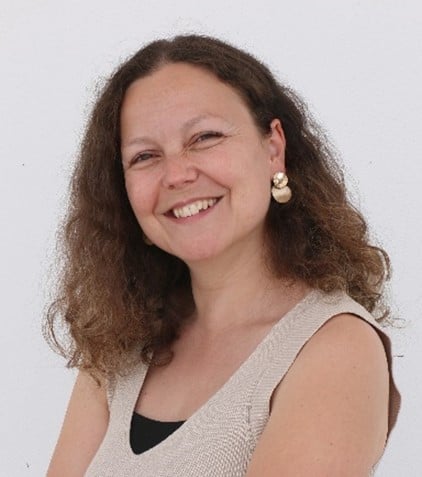
Dr. Rita Branquinho
CENIMAT|i3N, Department of Materials Science, NOVA SCHOOL OF SCIENCE AND TECHNOLOGY | FCT NOVA, NOVA University of Lisbon, Portugal
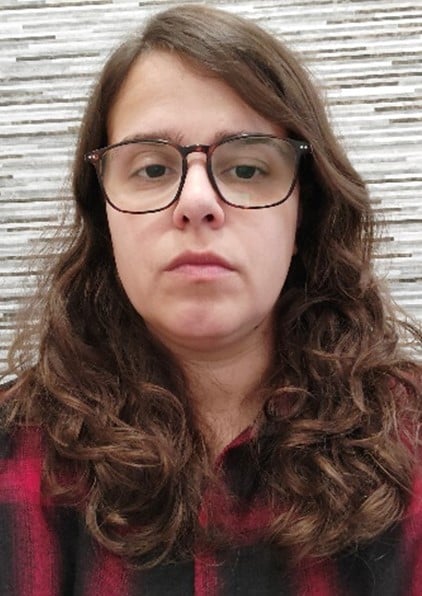
Dr. Daniela da Silva Nunes Gomes
CENIMAT|i3N, Department of Materials Science, NOVA SCHOOL OF SCIENCE AND TECHNOLOGY | FCT NOVA, NOVA University of Lisbon, Portugal

Dr. Emanuel Carlos
CENIMAT|i3N, Department of Materials Science, NOVA SCHOOL OF SCIENCE AND TECHNOLOGY | FCT NOVA, NOVA University of Lisbon, Portugal
If you have any questions about this webinar, please contact nanomaterials@mdpi.com.
We look forward to your participation in this event.
Nanomaterials Editorial Office
20 January 2023
Meet Us at the XII Reunión del Grupo de Física de la Materia Condensada de la RSEF (GEFES 2023), 1–3 February 2023, Salamanca, Spain
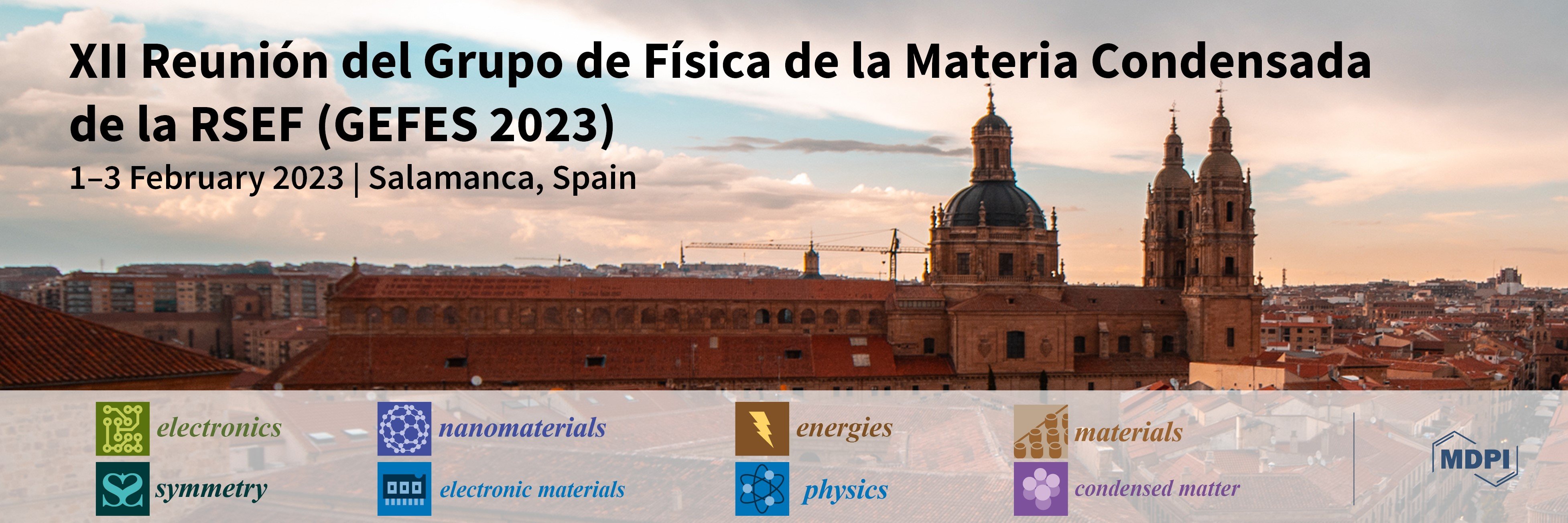
MDPI will be attending the XII Reunión del grupo de física de la materia condensada de la RSEF (GEFES 2023) in Salamanca, Spain, which will take place from 1 to 3 February 2023. The GEFES 2023 is the annual meeting of GEFES, the Condensed Matter Physics Division of the Spanish Royal Physics Society. The theme of GEFES 2023 is to review the condensed matter physics research achievements of the society in the past year and discuss the opportunities and challenges in the field.
The following MDPI journals will be represented:
- Electronics;
- Nanomaterials;
- Energies;
- Materials;
- Symmetry;
- Electronic Materials;
- Physics;
- Condensed Matter.
If you are attending this conference, please visit our booth. Our delegates look forward to meeting you in person and answering any questions that you may have. For more information about the conference, please visit the following link: https://gefes2023.es/.




